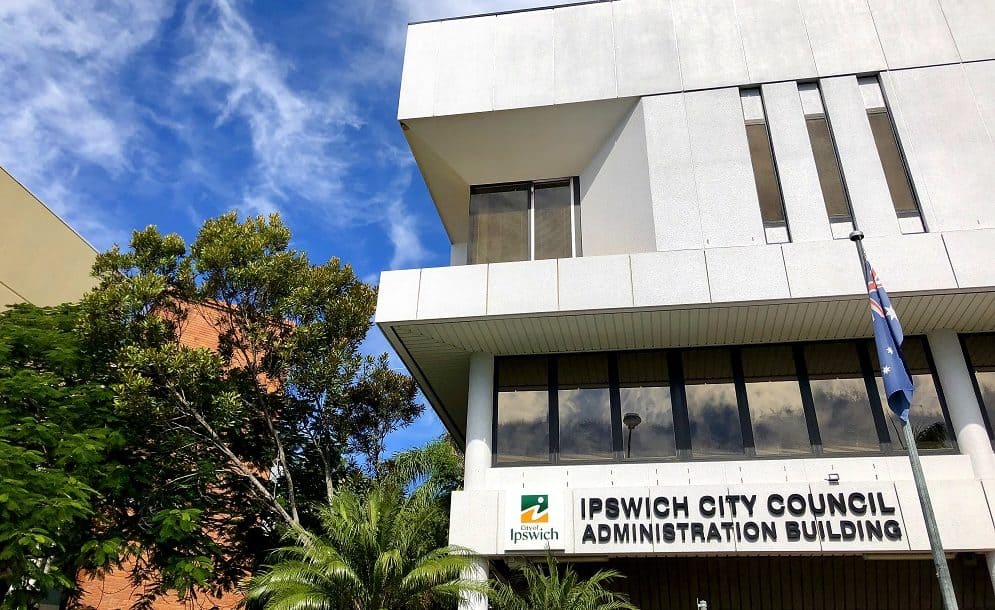As part of a mission to make Ipswich City Council an exemplar local government that other councils will want to follow, 18 transformation projects have been identified as key areas for reform.
Today, we look at Councillor Induction – the Return to Elected Representation and how it applies to council and potential councillors moving forward.
Local Government Minister Stirling Hinchliffe took the extraordinary step last year of sacking Ipswich City Council’s elected representatives.
He put Interim Administrator Greg Chemello in place in August 2018 to effectively run council without councillors until the March 2020 local government elections.
Mr Chemello has come in and made significant transformations within council and continues to work with his eyes firmly on the elections in a year.
You can read about his Big Ticket Items the Focus for Interim Administrator Ahead of 2020 Poll.
It is expected the field of candidates could be quite large next March given this will be a rare opportunity for people to seek to represent the interests of Ipswich residents with the benefit of a raft of reformed local governance policies and procedures in place.
Some pundits pick any number between 50 and 100 people nominating for the 8, 10 or 12 councillor roles, and separately for the city mayoralty.
One of the 18 business transformation projects council is pursuing is Councillor Induction, preparing for the return of elected representation, including the creation of an effective councillor induction and continuing development program.
Mr Chemello said this project involves the creation of leading practice frameworks and toolkits to best manage communication between councillors, council officers and the community.
He said it would also determine how the newly elected representatives could be most effectively supported by council officers.
“The purpose of this project is to thoroughly prepare staff and incoming councillors alike to ensure they are well aware of their responsibilities and obligations, and act in accordance with the council values, relevant legislation and policies when the council returns to elected representation following the 2020 quadrennial elections,” he said.
He outlined some of the benefits as:
- Thorough induction program for incoming councillors so they understand their responsibility to the community and the organisation including systems of local government, legislated obligations, principles and protocols including their integrity and transparency obligations.
- Preparing the community for a return to elected representation through an awareness and education program on the role of a councillor.
- An ongoing program of capability building for councillors to better serve the community and organisation.
Mr Chemello said the State Government’s Local Government Remuneration and Discipline Tribunal, which sets the pay scale for councillors, did not stipulate a minimum or maximum number of hours a councillor must commit to once elected – unlike an employee of council who has set working hours.
“Under Queensland law, a councillor’s key role is to work as a team of councillors to lead the strategy and policy development for the council organisation. This is to be in the public interest of the entire local government area, regardless of whether it is a divided or undivided council,” he said.
“Clearly, councillors need to have active engagement with their communities to effectively deliver this role.
“When council returns to elected representation in March 2020, I’ll certainly be encouraging any potential candidates to understand these responsibilities and what their commitment to the city and the community would entail.
“I’m confident incoming councillors should be also able to enjoy a healthy work-life balance.”
Mr Chemello said the Councillor Induction project was important to council for these reasons:
- To ensure councillors fully appreciate their roles and responsibilities
- To provide the highest level of effective and efficient service to the newly elected officials
- To ensure the professionalism and conduct of councillors
- To enable appropriate dealings between councillors and council staff, while ensuring both have a detailed understanding and respect of the appropriate requests guidelines and a clear and concise process to follow.
“It will also lead the development and implementation of a leading practice framework to ensure both candidates and elected councillors have an appropriate understanding of the roles and responsibilities of councillors.”

